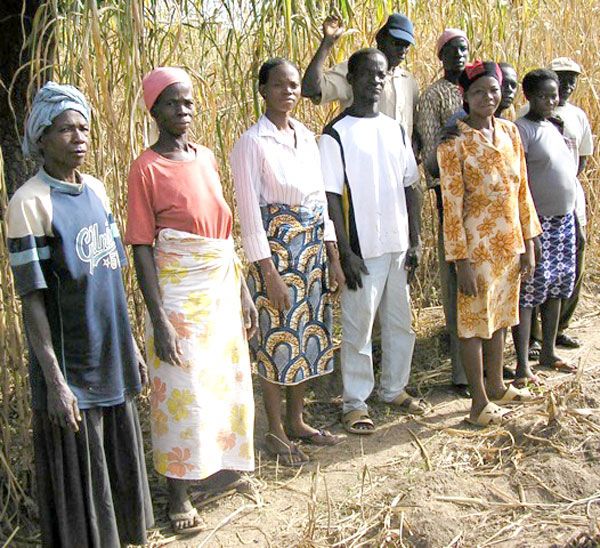La Grande-based organization helps families in Ghana become self-sufficient
Published 3:49 pm Thursday, May 28, 2009

- These are members of some of the families in Northern Ghana being assisted by Sabu Help. - Submitted photo
Most people in Northeast Oregon could not find the exact locations of the African villages of Biu and Tompola on a map.
Many Northeast Oregonians, though, are finding within themselves reason to reach out to the people of Biu and Tompola in Northern Ghana in a significant way.
The villages were hard hit by flooding in 2007. Many families in the villages are back on their feet thanks to continuing assistance they are receiving from the Sabu Help Project. Sabu Help is a La Grande-based project that helps Africa’s people in need. It is a project gaining momentum.
Sabu Help is providing $3,300 to 30 families in Northern Ghana this spring. The amount is up significantly from a year ago when $2,200 was provided to 20 families in Biu and Tompola.
The increase reflects the growing support the people of Northeast Oregon are providing to Sabu Help, said Doctor Ayeliya, a 2008 graduate of Eastern Oregon University from Ghana.
“People have been so tremendous,” Ayeliya said.
Ayeliya, who now lives in Taylorsville, Utah, founded Sabu Help about two years ago.
He said the increase in the amount of money Sabu Help has raised is allowing it to add Ganni in Northern Ghana to the villages it serves. Ganni has 1,000 people, Bui has 900 and Tompola 1,000.
Much of the money Sabu Help raises is used by farming families to purchase seed for crops and livestock. Money for seed is particularly vital because farmers in northern Ghana lost much of their seed in the 2007 flood. The flood washed away 250,000 acres of farmland in Northern Ghana.
Making people self-sufficient will allow them to gain a measure of financial sustainability. All farmers assisted by Sabu Help are required to pay back the money they received once their crops are harvested and sold. The money is returned to the Sabu Help Fund so that it can be used to help other people in Africa.
Farmers provided money for the purchase of livestock are given additional time to pay back the money they received. The reason is that it takes longer to get a return from livestock like goats, sheep and cattle than seed, Ayeliya said.
Ayeliya and other founders of Sabu Help selected Sabu as part of the project’s name because it means money in Kassen, a language spoken in Ghana.
Ayeliya said that the impact of donations cannot be underestimated because a U.S. dollar goes far in Ghana. One U.S. dollar is enough to feed a family of five in Ghana for a week.
Donations to Sabu Help can be made at any branch of U.S. Bank or sent to Sabu Help, P.O. Box 912, 1118 J Ave., La Grande 97850, or to Sabu Help, 4212 S. Athberton Dr. #20, Taylorsville, Utah, 84123. Additional information on making donations is available at Sabu Help’s web site, www.sabuhelp.org.
Sabu Help now has 501C3 nonprofit status from the Internal Revenue Service. This means all donations to Sabu Help are tax deductible.

